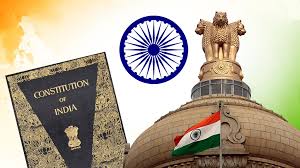Banks are financial Instutions, Intermediators, middleman between depositor and debtors.
DEPOSIT and LOAN
1)DEPOSIT:
Deposit is a term used to denote the money kept or held in any bank account, especially to accumulate interest.
The fund used as a security to get the goods delivered can also be called a deposit.
Liabilities = Deposits
Net Worth: The accounting rule states that both sides of the account must balance.
(Hence if assets are greater than liabilities, they are recorded on the right-hand side as Net Worth. )
Net Worth = Assets – Liabilities
In the banking system, this process ensures stability and effective management of cash reserves.
TWO TYPES OF DEPOSIT:
1.DEMAND DEPOSIT:
The money deposited with a financial institution that can be drawn from the account without providing any prior notice is called a demand deposit. Generally, demand deposits pay very little interest or no interest at all since the lock-in periods are shorter than time deposits.
Types of demand deposit are:
1.SAVINGS ACCOUNT:
A savings account is a basic type of deposit account that enables you to deposit your money while typically earning a small to modest amount of interest.
2.CURRENT ACCOUNT:
A current account is open only for business purpose (NO INTEREST)
- TIME /TERM DEPOSIT:
A bank deposit with a fixed interest rate and term is called a time deposit. A person cannot withdraw money from a time deposit account for a fixed term or must pay a penalty should he/she need to withdraw funds before the term ends. The penalty amount depends on the issuer and the term of the time deposit.
Types of time/term deposit are:
1.FIXED DEPOSIT:
A Fixed Deposit is kept for a longer period and hence it earns a higher rate of interest.
2.RECURRING DEPOSIT:
A Recurring Deposit takes a defined sum and invests it every defined period.
2)LOAN:
A loan is a sum borrowed from a financial institution, usually a bank or financial institution, with the obligation to repay it over time. Interest is typically charged on loans, the cost of borrowing money. A loan can be used for a variety of objectives are:
1.Secured loan.
2.Housing loan.
3.Agriculture loan.
4.Education loan.
5.Personal loan.
6.Vechicle loan.
7.Corporate loan. etc.
Assets = Reserves + Loans
Liabilities: For any firm, Liabilities are its debts or what it owes to others.
For a bank, the main liability is the deposits which people keep with it.
TYPES OF BANKING SYSTEM:
1.Commercial Bank:
Commercial banks provide necessary economic services such as checking and savings accounts and other monetary services to both business and individuals.
They are *Public sector:psb are financial inclusion and government schemes,owned by goverment and widespread network with branches across country.
Private sector: PS are focus on customer centric services and innovation, by private share holders.
Foreign banks: these banks global banking expertise and services, its an international and domestic banking services
Regional rural banks: These banks for rural and agriculture communities services like credit & financial services for rural areas.
2.Development Bank(or) All India financial institutions:
Established with act of parliament.
NABARD(national bank for agriculture & rural development):Headquaters in Mumbai.
Established on July12th 1982 as an Apex institution for the development of agriculture & other economic activities in rural areas.
SIDBI(small industrial development bank of india):
Established on 2nd april,1919. To provide refinance facility & short term lending to industries & serve as principle financial institution in the MSME sector.
NHB(housing bank {schemes & subsidy}):Headquarters in Delhi
Established on 9th July 1988, It is a apex institution for housing.
EXIM(export & import)
Established on 1st Jan 1982, It is a apex institution for the promotion of cross border trade & investment.
3.Different Bank: They are Payment bank: pb are relatively new addition to Indian banking sector, introduced by RBI to enhance financial inclusion and digital payments.
Small finance bank
Islamic bank
4.CO-Operative Banks:
cooperative banks offer range of services like accepting deposits and granting loans to the members and even non-members.as a registered cooperative society under cooperative society act of 1965 this bank is governed by both banking and cooperative legislation and is regulated by the NABARD & RBI.



